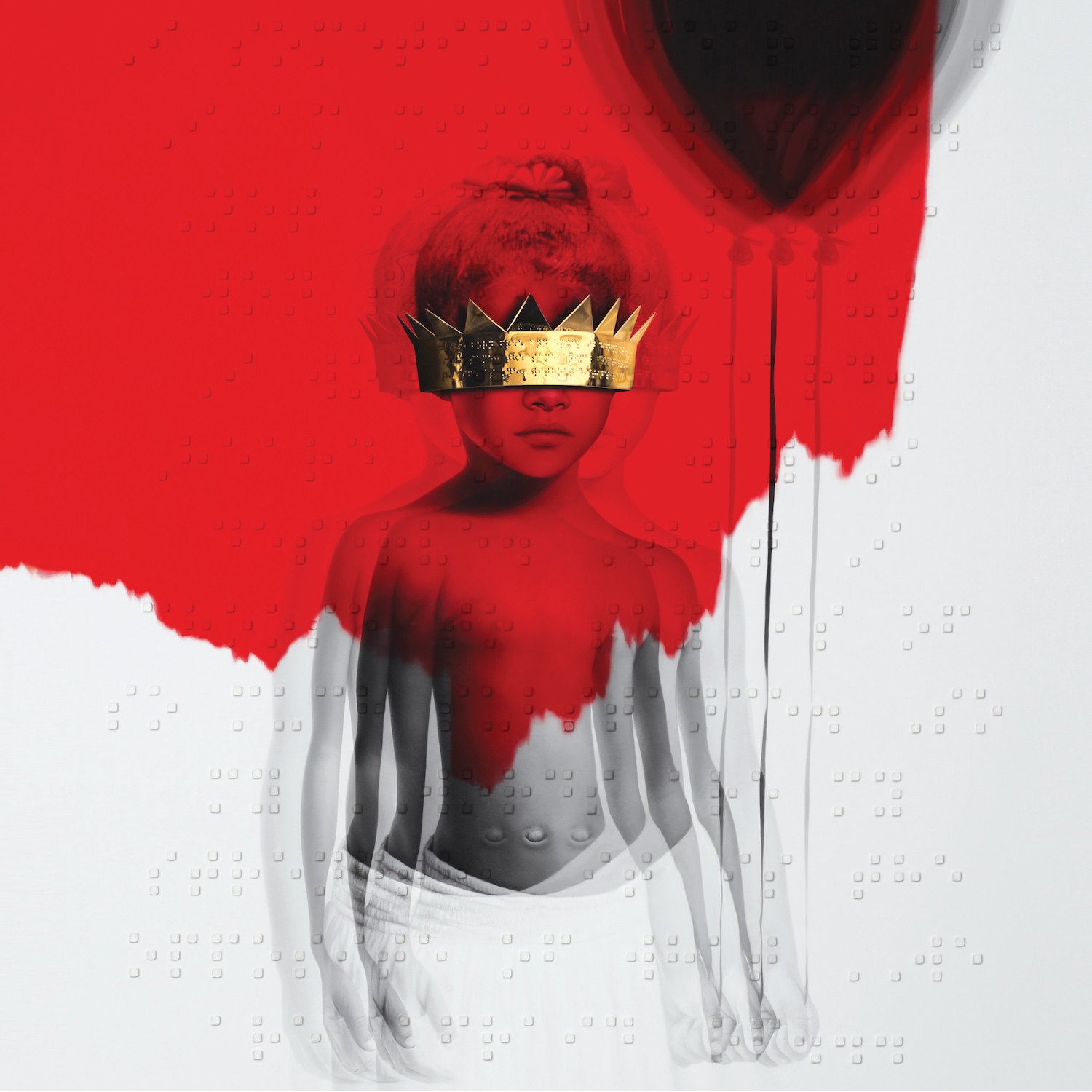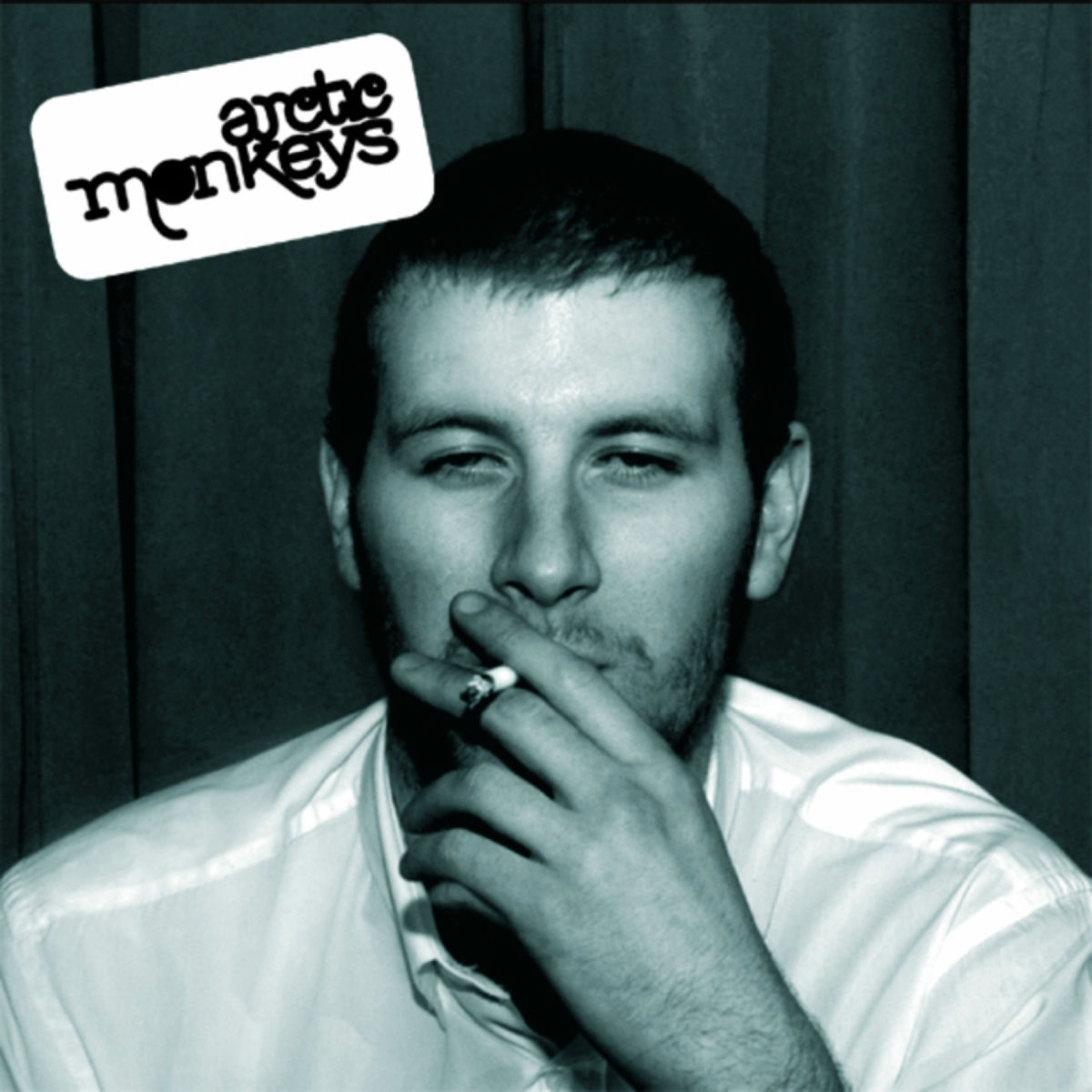M.I.A. was right. Well, she ended up being wrong about a lot (vaccines especially), but she was on the money about the internet, the focal point of her third album ///Y/, which came out 10 years ago today. The songs on ///Y/ are mostly about ideas that seem obvious now -- the nefarious rise of social media, the erosion of personal privacy, the inescapable connection between big technology and the military industrial complex -- but then, those ideas were less mainstream, more the province of fringe conspiracy nuts. The novelty of the internet's constant connectedness hadn't yet totally faded. There was still something amazing about having the world at our fingertips.
Back in 2010, there was skepticism over social media, sure, but we were also only a few months away from the release of The Social Network, a movie that placed the blame of Facebook mostly on wannabe frat-boy hubris rather than the financial gain of selling everyone's personal data for billions. ///Y/ sounds itchy and frustrated and all-over-the-place, sort of like how one might feel when coming to the realization that you don't really have any choice but to carry around a device that tracks your every movement. M.I.A. realized early on that she was both indebted to technology and powerless to stop its creep.
A decade ago, the country was swept up in a sense of optimism, a post-Obama election glow. M.I.A. wasn't necessarily convinced. "The world has changed," she said in an interview at the time. "I came up talking shit about Bush, and it's great that it's changed, but I don't know how much it's changed, and I'm exploring that." The company that delivered anything you wanted to your door instantaneously was also collaborating with the government to improve drone strike technology. The site that made it impossible to forget about the people from your high school would fuel the biggest schism in US politics in history.
The techno-anarchism of ///Y/ was a different tack than M.I.A.'s first two albums, the critically acclaimed Arular and Kala. Those albums placed M.I.A. on a global scale, had her rapping about Sri Lanka and other countries that many in her audience wouldn't have given a second thought to unless they were packaged with hooks. There is a lot of valid criticism about the contradictory, hypocritical nature of M.I.A.'s politics -- how she uses catchy sloganeering without letting her songs dig deeper into the facts, how she conflates ideas that ought not to be conflated.
I'm not sure what pop music can avoid all that, but it is fitting that an album about the toxicity of the internet would have a controversy all its own that stands as an early example of social media outrage. Yes, the infamous truffle fry incident, in which a New York Times reporter made a specific point to mention M.I.A. eating truffle fries during their interview as a way to establish her as a fraud, singing about corruption and injustice while profiting from it. M.I.A. had been accused of hypocrisy before, and she would be long after, but the firestorm that followed that incident was a particularly ugly example of what the internet would eventually come to be. Both sides came away looking bad.
That definitely played into the album's initial reaction as immediately divisive. There were glowing reviews and scathing pans, and in between them all a consensus emerged: ///Y/ was a lot. Whether you heard that as good or bad is up to personal preference, but there's no denying that ///Y/, from its excessively punctuated name on down, is chaotic. It sounds like the overwhelming cacophony of a culture that was just starting to be online all the time, delivered by a person who was most definitely too-online at the time. M.I.A. was trapped in a bubble while recording ///Y/ -- it's reactionary and messy and often too focused on personal slights that hold no weight 10 years on.
While Kala, her previous album, was recorded all around the world -- in studios in Trinidad, India, Jamaica, Australia, and Liberia -- ///Y/ was recorded mostly in Los Angeles, primarily from her home after she had given birth to her son. She didn't leave LA for 18 months, and ///Y/ certainly sounds like it came from someone who had too much time on their hands. It's abrasive and loud, a digital scroll of information overload. It's an album about how the world as it really exists cannot be reflected in a screen, how the powers that be are actively sucking your attention away from what actually matters, how being connected actually leads us to feel more disconnected.
The songs are all glitchy and undefined, many culled from long improvisational recording sessions. They're confrontational and massive, slathered with pre-Yeezus industrial scour. M.I.A.'s coterie of producers this time around included Diplo, Blaqstarr, Rusko, and Switch, and they all feed off the same scattered energy. Following the paranoid introduction, on which M.I.A. chants "connected to the Google, connected to government" in a rhythm lifted from the spiritual "Dem Bones," you're hit over the head with power drills on the invigorating "Steppin Up." "You know who I am, I run this fucking club," M.I.A. insists on that one, like a slasher movie killer holding up a chainsaw with a grin. It's the the first indication that ///Y/ is not going to be easy to take in.
///Y/ is prone to whiplash; immediately after that, we get "Xxxo," one of M.I.A.'s cleanest bids at pop transcendence, a song that ties together personal attraction with the feeling of being validated by the internet. "You wan' me be somebody who I'm really not," M.I.A. sings in its driving chorus. But ///Y/ never stays in the same place for long -- then there's "Teqkilla," a sometimes trying six-minute churn, followed by "Lovalot," which brings us back to M.I.A. as a slinking pop star, albeit with a song purportedly written from the perspective of a Russian suicide bomber.
It's often hard to grab hold of ///Y/, but that's part of its charm. It's always going off in a different direction, a true reflection of the experience of being online and constantly getting pulled between tragedy and comedy. Still memorable are the noisier tracks: "Born Free," with its rattling Suicide sample that takes off at breakneck speed and never lets up; "Meds And Feds," with its backing beat pulled from the closing track of M.I.A. acolytes Sleigh Bells' debut album Treats, which had come out a couple months prior. That last one contains what could be seen as the thesis for the entire album: "We're growing up in the middle of a digital ruckus."
But there are also a lot of tender moments on //Y/ that defy that ruckus. There's a lot more singing, too, an intentional move. "I just stopped singing on the last one because I put more emphasis into production, so I was more about making beats and sang less on my last album," M.I.A. said. "The last album, I didn’t actually sit anywhere long enough for it to really be in my life and to really think about it." M.I.A. is thinking a lot on //Y/, and not all of her thoughts are bad. She allows the space for gooey love songs, songs about floating off into outer space and enjoying the feeling of being out there away from all the problems of the world.
These are some of the most satisfying songs on the album: a goofy reggae cover of Spectral Display's "It Takes A Muscle," the twitchy and mumbly "It Iz What It Iz." "Maybe it's just us or maybe it's just me," she sings on that one. "We can have discussions while we are playing Wii," a delightfully dated reference. On "Tell Me Why," she channels her usually anxious frustration into a skyward pop song: "Tell me why things change but it feels the same," she sings. "If life is such a game/ How come people all act the same?"
M.I.A. always positioned herself as an ambassador of world culture, and she often succeeded at that through her music to delirious effect. "You can Google ‘Sri Lanka’ and it doesn’t come up that all these people have been murdered or bombed, it's 'Come to Sri Lanka on vacation, there are beautiful beaches," she said in an interview around the time that ///Y/ was released. "You’re not gonna get the truth till you hit like, page 56, and it's my and your responsibility to pass on the information that it’s not easy anymore."
Before it was commercially acceptable for pop stars to speak up about politics, M.I.A. made her whole brand politics. She never stopped doing that, but she is also a pop star who can make exhilarating pop songs. ///Y/, with its internet aversion and overstuffed sound, was ahead of its time. It's kind of a mess, but it's a glorious mess, and one that only M.I.A. could have made.






